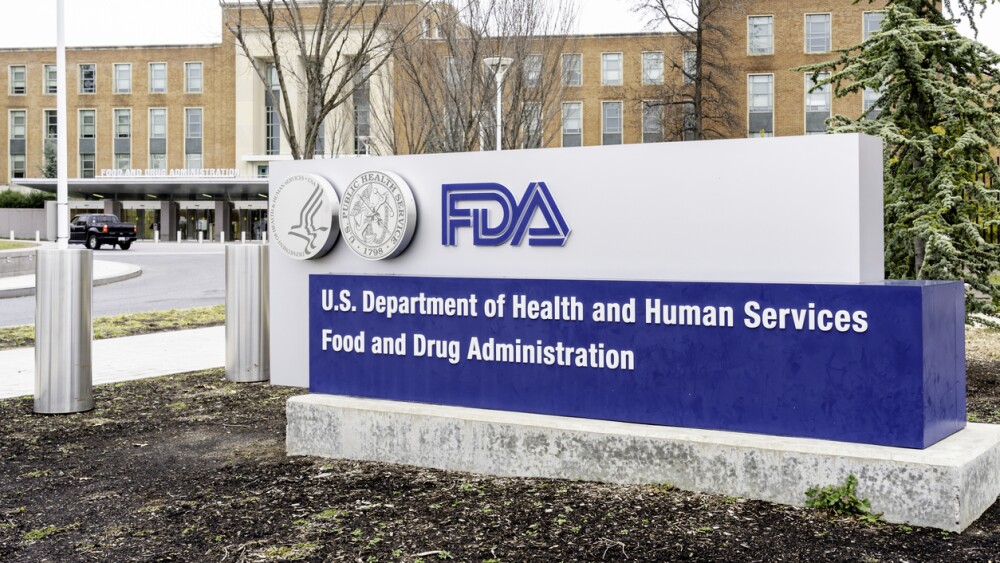NUTLEY, N.J., March 26 /PRNewswire-FirstCall/ -- Roche announced today the submission of a supplemental new drug application (sNDA) to the U.S. Food and Drug Administration (FDA) for the use of Xeloda(R) (capecitabine) in combination with oxaliplatin -- XELOX -- with or without Avastin(R) (bevacizumab) in the treatment of metastatic colorectal cancer.
"This filing marks a significant milestone for Xeloda, which continues to demonstrate its value as a cornerstone in combination therapies, as in this case with oxaliplatin and Avastin. It further supports Roche's longstanding commitment to advancing treatment for patients with colorectal cancer," said Lars Birgerson, Vice President, Medical Affairs, Roche.
The submission to the FDA is based on results from two large, international Phase III studies (NO16966 and NO16967) which showed XELOX to be as effective -- in terms of progression-free survival (PFS) -- as the current standard treatment, FOLFOX-4 (intravenous bolus and infusional 5-fluorouracil plus oxaliplatin). Study NO16966 also showed that XELOX in combination with Avastin further improved progression-free survival over XELOX alone.
"By showing XELOX to be as effective as FOLFOX in both the first and second line settings, these studies not only demonstrate its promise as a new combination therapy for patients with advanced colorectal cancer, but also support a potential alternative to intravenous chemotherapy with oral Xeloda," said Ed Chu, Professor of Medicine and Pharmacology, Deputy Director of the Yale Cancer Center. "In these trials the data also show that adding Avastin to XELOX further improved progression-free survival, making XELOX plus Avastin a very important and effective treatment option."
Colorectal cancer is the third most common cancer in the U.S. The American Cancer Society estimated that in 2006, more than 148,000 people were diagnosed with the disease and about 55,000 people died from it.
Study NO16966
Study NO16966 was a large, randomized, international Phase III trial of 2,034 advanced colorectal cancer patients that initially compared first-line XELOX (XELODA + oxaliplatin) versus FOLFOX-4 (intravenous bolus and infusional 5-fluorouracil + oxaliplatin). The protocol was later amended to investigate XELOX + placebo versus XELOX + Avastin (7.5 mg/kg q3w) versus FOLFOX-4 + placebo versus FOLFOX-4 + Avastin (5.0 mg/kg q2w). The study met its primary endpoints in showing that XELOX is as effective in terms of progression-free survival as FOLFOX-4, and that the addition of Avastin to chemotherapy (FOLFOX-4 and XELOX) significantly improved progression-free survival compared to chemotherapy alone.
Study NO16967
The NO16967 trial is a large, international phase III trial that randomized 627 patients who had previously received chemotherapy and whose disease had returned or continued to progress following treatment with irinotecan in combination with 5-fluorouracil/leucovorin. The trial compared XELOX vs. FOLFOX-4 as second-line colorectal cancer treatment. The study showed that XELOX is as effective as FOLFOX-4 in terms of progression-free survival.
About XELOX
XELOX is an abbreviation for a type of combination chemotherapy used to treat colorectal cancer; it contains XELODA (capecitabine) plus oxaliplatin. In the combination studies NO16966 and NO16967, XELOX was shown to be as effective as FOLFOX-4 in terms of progression-free survival in patients with metastatic colorectal cancer. The safety profile of XELOX and FOLFOX-4 were balanced, with no excess of toxicity observed. More gastrointestinal toxicity (most notably, diarrhea) but less hematological toxicity (most notably, febrile neutropenia) was seen in XELOX compared with FOLFOX-4.
About XELODA (capecitabine)
Xeloda is the only FDA-approved oral chemotherapy for both metastatic breast cancer and adjuvant and metastatic colorectal cancer. Inactive in pill form, Xeloda is enzymatically activated within the body. When it comes into contact with a naturally occurring protein called thymidine phosphorylase, or TP, Xeloda is transformed into 5-FU, a cytotoxic (cell-killing) drug. Because many cancers have higher levels of TP than does normal tissue, more 5-FU is delivered to the tumor than to other tissue.
A clinically important drug interaction between Xeloda and warfarin has been demonstrated; altered coagulation parameters and/or bleeding and death have been reported.
Clinically significant increases in prothrombin time (PT) and INR have been observed within days to months after starting Xeloda, and infrequently within one month of stopping Xeloda. For patients receiving both drugs concomitantly, frequent monitoring of INR or PT is recommended. Age greater than 60 and a diagnosis of cancer independently predispose patients to an increased risk of coagulopathy.
Xeloda is contraindicated in patients who have a known hypersensitivity to 5-fluorouracil, and in patients with known dihydropyrimidine dehydrogenase (DPD) deficiency. Xeloda is contraindicated in patients with severe renal impairment. For patients with moderate renal impairment, dose reduction is required.
The most common adverse events (greater than or equal to 20%) of Xeloda monotherapy were diarrhea, nausea, stomatitis and hand-foot syndrome. As with any cancer therapy, there is a risk of side effects, and these are usually manageable and reversible with dose modification or interruption.
About Roche
Hoffmann-La Roche Inc. (Roche), based in Nutley, N.J., is the U.S. pharmaceuticals headquarters of the Roche Group, one of the world's leading research-oriented healthcare groups with core businesses in pharmaceuticals and diagnostics. For more than 100 years, the Roche Group has been committed to developing innovative products and services that address prevention, diagnosis and treatment of diseases, thus enhancing people's health and quality of life. An employer of choice, in 2006, Roche was named one of the Top 20 Employers (Science magazine), ranked the No. 1 Company to Sell For (Selling Power), and one of AARP's Top Companies for Older Workers, and in 2005, Roche was named one of Fortune Magazine's Best Companies to Work For in America. For additional information about the U.S. pharmaceuticals business, visit our websites: http://www.rocheusa.com or www.roche.us.
RocheCONTACT: Ginny Valenze, Roche, Office: +1-973-562-2783,virginia.valenze@roche.com; Daphne Hoytt, Manning Selvage & Lee, Office:+1-212-468-3558, Cell: +1-917-406-2779, daphne.hoytt@mslpr.com




